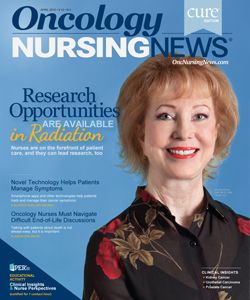Plan Ahead to Get the Most Out of Conferences
Five tips on how oncology nurses can maximize the benefits of meeting attendance.
Nurses often ask me which sessions they should attend when going to an oncology nursing conference, but there is no standard reply. It takes some homework to ensure that they get the most out of their conference experience. They should tailor their plan as much as possible. For example, nurses should consider if the topic of a session is unfamiliar to them and something they want to learn more about. Is the focus an issue that is causing struggles at work? Is it a peripheral theme that does not directly affect current nursing practice but likely will in the future?
Over the decades, I have attended hundreds of conferences. Because of my extensive track record in continuing education, I have some thoughts about what nurses should consider before day 1 of an event.
First, scrutinize the schedule. Highlight the titles that seem appealing. Then, if available, look at the session descriptors and goals. Knowing this information might influence the decision to attend or not. Lastly, consider the speaker. Is this a recognized opinion leader on the topic? Have they written about the theme of the session? Ask colleagues who have attended similar offerings if they have heard that person present. If so, did the speaker connect with the audience, provide practical information—not just read the slides— and offer new information of relevance to the participants? All these components are critical musts to maximize learning.
Second, look for offerings that are different from the typical didactic session. There is only so much a person can absorb when someone else does all the talking and you do the listening. Is there evidence in the brochure that the presenters will use videos, role-playing, small group sessions, case studies with an audienceresponse format, or other types of novel teaching methods? Engagement is the key factor here.
Third, before attending the conference, be sure to check the listing about the availability of handouts and copies of slides. Get these in order before departing for the conference. I put these materials in a binder arranged by the day so that I am organized at the outset. It’s also important to bring several highlighters and take notes liberally. When listening to a lecture, I often find myself triggered to consider something new or am made aware of a related concept. For example, I was listening to a talk on neuro-oncologic emergencies, and much of the information being presented focused on seizure management and cognitive changes. I found myself thinking, “What about patients driving? Are there criteria to consider in offering advice about not getting behind the wheel?”
Fourth, don’t assume that a major conference won’t give attendees an opportunity to share their views. Look for roundtable discussions and opinion panels for which the audience is asked to contribute. Many times, these interactive formats are the most informative. Also, the networking that transpires can be invaluable. Ask for new colleagues’ contact information. Look for opportunities to increase your peer network. At lunch, look for unfamiliar faces and sit at that table. At social events, try an introduction such as “I think I saw you in the town hall meeting. What did you think when they said…?” Following a particularly impressive or enjoyable session, approach the speaker to find out if he or she is open to being contacted later.
Attending a major conference provides the opportunity to look outside your own little box. Your world expands. You are on the receiving end of new information and become enlightened. You feel validated when you hear that you are doing a procedure in the ideal manner. More than once, I have heard colleagues say something along the lines of “Well, we’ve been doing that for a year now.” You may also be energized to prepare an abstract for a future conference.
Lastly, I know participants frequently get tired of hearing about the importance of filling out evaluations, but this step is critical. Conference planners look at the evaluations closely. Attendees’ opinions are heard, especially when they offer suggestions to improve an element of the education. Taking action to better the offering affects future attendance and, ultimately, revenue.
I challenge nurses to change their way of thinking about conference attendance. It requires more than a passive stance of showing up, sitting for long periods of time, and listening. To maximize conference participation, take an active role in analyzing, synthesizing, and configuring the educational experience based on your individual learning needs. Enlightenment is worth it.

Innovative Program Reduces Nurse Turnover and Fosters Development
Published: September 12th 2024 | Updated: September 12th 2024The US Oncology Network (The Network) has developed one of the most comprehensive programs in the nation to support the professional development and retention of new oncology nurses.



